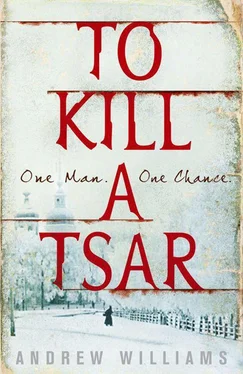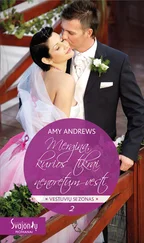‘Do you know, Doctor,’ said Lady Dufferin, turning to Hadfield, ‘a terrorist tried to kill the chief of the secret police—’
‘The Third Section—’ her husband corrected her from the seat beside her.
‘…just around the corner from our house? Two shots were fired into his carriage. They missed, but now they’re threatening to murder his daughter. And Mr Dobson says a girl walked into a party in Moscow last week and shot a man. That’s correct, isn’t it, Mr Dobson?’ Lady Dufferin leant back to catch the eye of the correspondent.
‘Yes, Your Ladyship. They say the victim was ordered to shoot the emperor but fled from Petersburg to avoid doing so and that the girl was sent to punish him.’
‘Well, what do you think of that?’ Lady Dufferin asked in a voice that left no doubt as to her own strong opinion on the matter.
Hadfield was relieved when the conversation turned to the ambassador’s first official visit to the Winter Palace. Leaning forward a little, he could see the only empty seats in the house were in the imperial suite. That Meyerbeer’s The Prophet was not to royal taste was hardly surprising, for it had been a great favourite in revolutionary circles in Switzerland where it was held to be a salutory tale of tyranny and religious hypocrisy.
‘…I don’t like it at all,’ said Lady Dufferin. ‘The electricity spoils the effect of the chandeliers. The balcony’s in darkness. And here,’ with a graceful flourish of her gloved hand she indicated the boxes on the opposite side of the grand tier, ‘the lamps are too bright. Look, the lights flicker and change colour. It just isn’t as gay as gas. But what an extraordinary modern age we live in.’
Yes, yes, what a modern age. Hadfield nodded as if hanging on her every word, but his attention was fixed on the gloom near the back of the stalls. Later, he would wonder what had drawn him to her of the many hundreds seated below: Anna Kovalenko, his persecutor at the political salon, Anna with the strikingly beautiful blue eyes. Perhaps it was because even at such a distance he could sense she was restless and ill at ease. Evgenia Figner and Madame Volkonsky were sitting to her right; to her left, the vociferous and blood-thirsty Goldenberg. The imperial suite with its huge orange velvet and gold fringed drapes was almost directly above them. Fortunate then that the chairs inside it were empty, Hadfield thought with a wry smile, or the evening might have been spoilt.
‘Have you seen someone you know, Doctor?’ asked Lady Dufferin. ‘A patient?’
‘An acquaintance — a friend of my cousin’s,’ Hadfield replied, leaning back in his seat.
The Anabaptists plotted and the wicked count carried off fair Bertha to his castle and for a while he was lost in the rhythm and grace of the music. But after a time, maddeningly, Hadfield’s gaze drifted from the stage to the orchestra pit and across the gentlemen in their tail coats and white ties, the ladies in taffeta and pearls, to the little band at the back of the stalls. What would they think of him if they knew he was in a tidy velvet box with a countess and the gentlemen of the British embassy? But did it matter what they thought? He had the troubling sense that his life was losing some of its shape. He had felt something of the same the week before, when he had rushed from a dirty crowded ward at the Nikolaevsky Hospital to a scented boudoir on the English Embankment to treat the wife of an iron master who was suffering from nothing more than a severe case of indigestion. From the grand tier he could imagine his shadow in the stalls below — the doctor who argued with passion for better public health, for a fairer distribution of wealth, the doctor who walked a humbler but principled path with comrades who thought the same.
At the end of Act Two the mezzo soprano took her curtain call, the electric lights flickered and burst into life and the door of the box was opened by a waiter with a tray of tinkling glasses. Hadfield made his excuses: ‘So tiresome… friend of my cousin… really feel obliged…’ Lady Dufferin was all gracious understanding. From the stairs, he searched the shining pink faces in the foyer below but he could not see Evgenia Figner or her companions, and so with the single-minded purpose of a doctor summoned to a medical emergency, he began to shoulder his way through the scented press, deaf to the fluttering chorus of disapproval. Madame Volkonsky was the first to see him and she gave a little shake of her handkerchief in welcome: ‘Doctor.’
The women had wandered to the front of the stalls and were standing at the rail beneath the proscenium arch, gazing into the orchestra pit. Goldenberg was nowhere to be seen.
‘How fortunate that we should find you here, Doctor.’ Madame Volkonsky offered him her hand and he held it for a moment, then, turning to the younger women, he gave a stiff little bow.
‘I don’t think you’ve been,’ Evgenia paused, ‘formally introduced.’ She placed provocative stress on the word ‘formally’. ‘Anna Kovalenko — Doctor Frederick Hadfield. Anna remembers you well, Doctor’ — this with a mischievous little smile.
Anna had coloured a little, but her jaw was firmly set and there was an unmistakable look of defiance in her blue eyes. ‘Doctor.’ She was not wearing gloves and the hand she offered Hadfield was small and cold to the touch.
‘Are you enjoying the opera, Doctor?’ asked Madame Volkonsky. She did not wait for an answer: the mezzo soprano was quite wonderful, didn’t he agree, the handsome tenor singing the part of John of Leyden too. Wasn’t it an inspiring work — so many valuable lessons? On she twittered like a lark.
‘I know Vera will be sorry to have missed you,’ said Evgenia, cutting across her.
‘Vera was so fond of opera. Is she still in the city?’
‘She’s visiting our family in Kazan…’ Evgenia hesitated. ‘My mother…’ The uncomfortable frown hovering between her dark eyebrows suggested to Hadfield this was a half truth at best. Anna came to her rescue.
‘Which hospital do you work at?’ The question was fired with a peremptoriness that made him start.
‘The Nikolaevsky, Miss Kovalenko. And I have some patients of my own.’
‘Patients who can afford to pay.’
‘Yes,’ he said, drawing the word out into a challenge. He was not going to be bullied into feeling guilty.
‘The Nikolaevsky is a military hospital, isn’t it?’ Again it sounded like a criticism.
‘But it doesn’t treat only soldiers.’
‘You said at Madame Volkonsky’s salon you believed in working among the people, winning their trust, and that you thought that was the only way to make them listen to us.’
‘I do believe that.’
‘There is a clinic for the poor not far from your hospital, in the Peski district. Evgenia and I do what we can there on Sundays. We need a doctor. Will you help us?’ She leant forward a little, her eyes shining with fervour. Hadfield could feel the colour rising in his face.
‘What a wonderful idea! Do say yes, Doctor,’ Madame Volkonsky gushed. ‘I am sure you’re right. If we help them, they will learn from us. That is the only way to bring about reform.’
How foolishly sentimental Madame Volkonsky made his views sound, he thought, patronising too. Anna was still looking at him intently with those piercing blue eyes, and his heart beat a little faster.
‘Well, Doctor, will you help us?’
‘Of course, yes.’
A small satisfied smile was playing on Anna’s lips and she looked away at last, the spell broken. The theatre bell began to ring for the third act, the musicians drifted back to their seats in the pit, the auditorium began to fill with the excited hum of anticipation.
Sitting in the darkness behind Lady Dufferin, Hadfield wondered what on earth possessed him to agree. He was being drawn into association with people who — for all their philanthropy — believed killing and maiming could fashion a civilised society. Perhaps they were at the Mikhailovsky to plan just such an outrage, taking note of discreet corners beneath the imperial suite, while on the stage the basses thundered the unthinking dogmas of Meyerbeer’s Anabaptists. The light catching the pearls around the neck of the ambassador’s wife, the scent of pomade from the hair of her young gentlemen, crisp white cuffs and polished black shoes, and the thick orange velvet covering of the balcony rail; he took pleasure in these details like a scientist examining a slide beneath a microscope, for they were the comforts of the world in which he lived most of his life. But how much keener his appreciation if there was the risk of losing them — a small chance, granted — but enough to give life more edge. In Russia, guilt by association might secure even a well-connected doctor several years in a katorga in Siberia. Excitement, then, and no small satisfaction, in Sunday work the student doctor of his Zurich days would have respected.
Читать дальше












